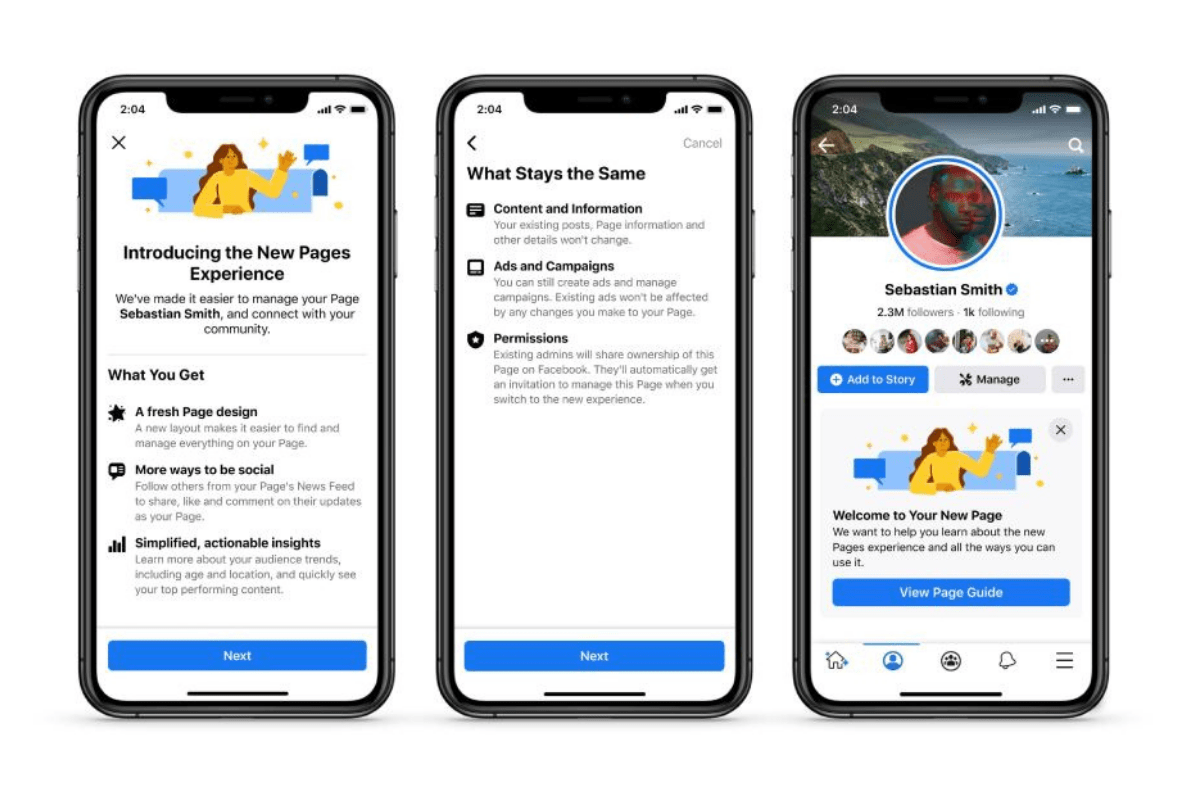Facebook has removed the ‘Like’ button from public pages on the platform. The social media giant’s focus is on the ‘followers’ of a page instead of ‘likes’. Now users will be able to see the number of people a page is following and the number of followers it has. Facebook in a blog post said that they have made the recent changes to their pages for enabling public figures, businesses, and creators to build a community and interact better with them. Facebook’s six major changes to the pages include a redesigned layout, a dedicated news feed, easy navigation, updated task-based admin controls, actionable insights, and safety and integrity features.
All Changes Brought to the Public Pages by Facebook
Starting with the redesigned layout, users will now be able to clearly differentiate between public pages and private accounts. The look of public pages is cleaner now and streamlined for an elegant appearance. Facebook has added a dedicated news feed for public pages. This will enable pages to discover and join conversations. Basically, it will increase the engagement of pages with its audience. The dedicated news feed will also suggest new connections to the pages. Any comment from a public figure or a verified page will be bumped up in the comments sections so a wide number of people can see it. A question and answer (Q&A) format has also been introduced for the pages. This will allow users or fans of the page to ask questions about a certain topic. All the answers provided by the page can become a part of a stack of questions on the page which followers can swipe through anytime they want. But one of the biggest updates to the pages is the removal of ‘Like’ button. Facebook is aiming to simplify the way people interact with their favourite pages. Instead of liking a page, now users can follow it. Followers will be those group of users who will receive updates and posts from the page. This will give public figures and high-profile businesses a stronger sense of their fan base. Management tools for pages have been improved. Public pages will assign and manage admin access permissions in a better way for specific tasks. This will bump up the safety and security of the page as well. Facebook also said that it has increased its ability to detect activity that isn’t appropriate for the public platform. So users spreading hate speech, sexual or spammy content on the platform will be identified very fast.
